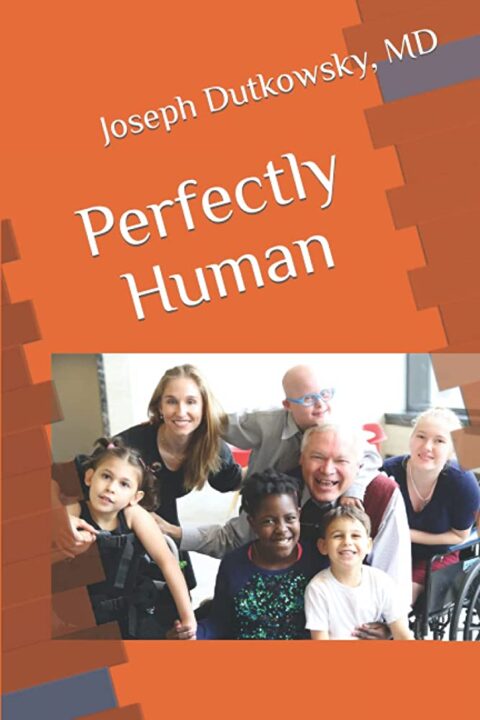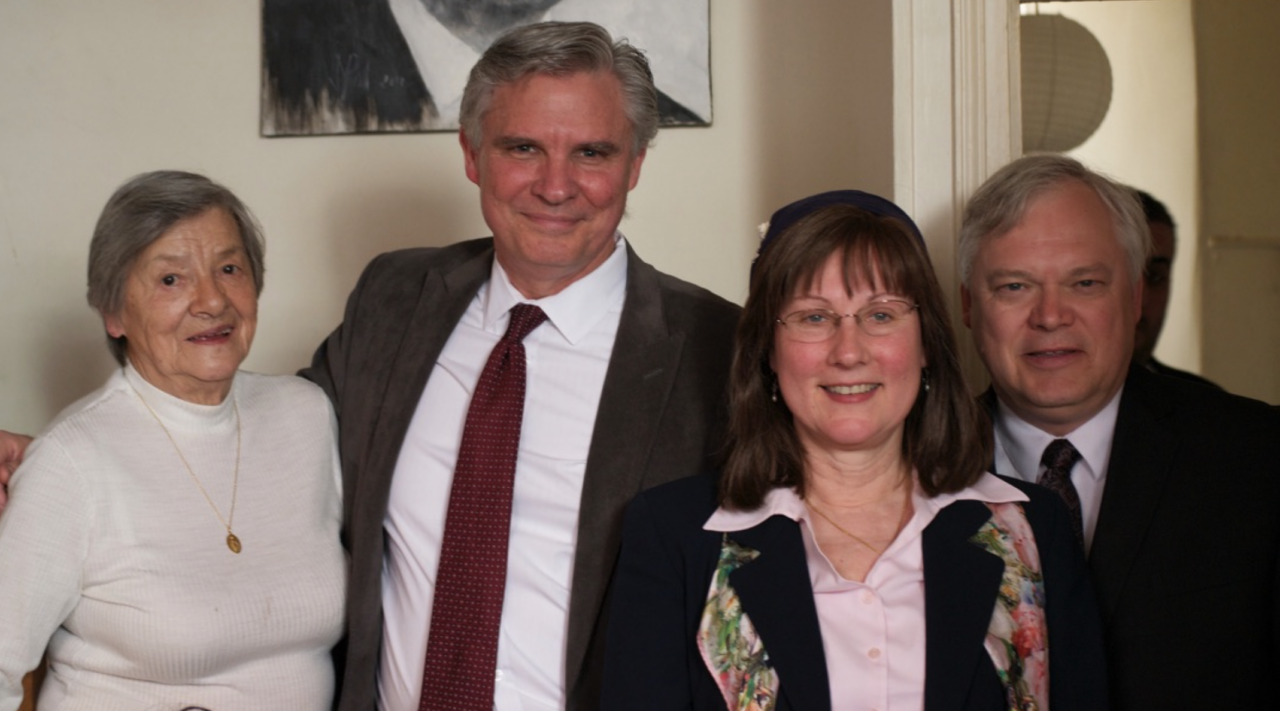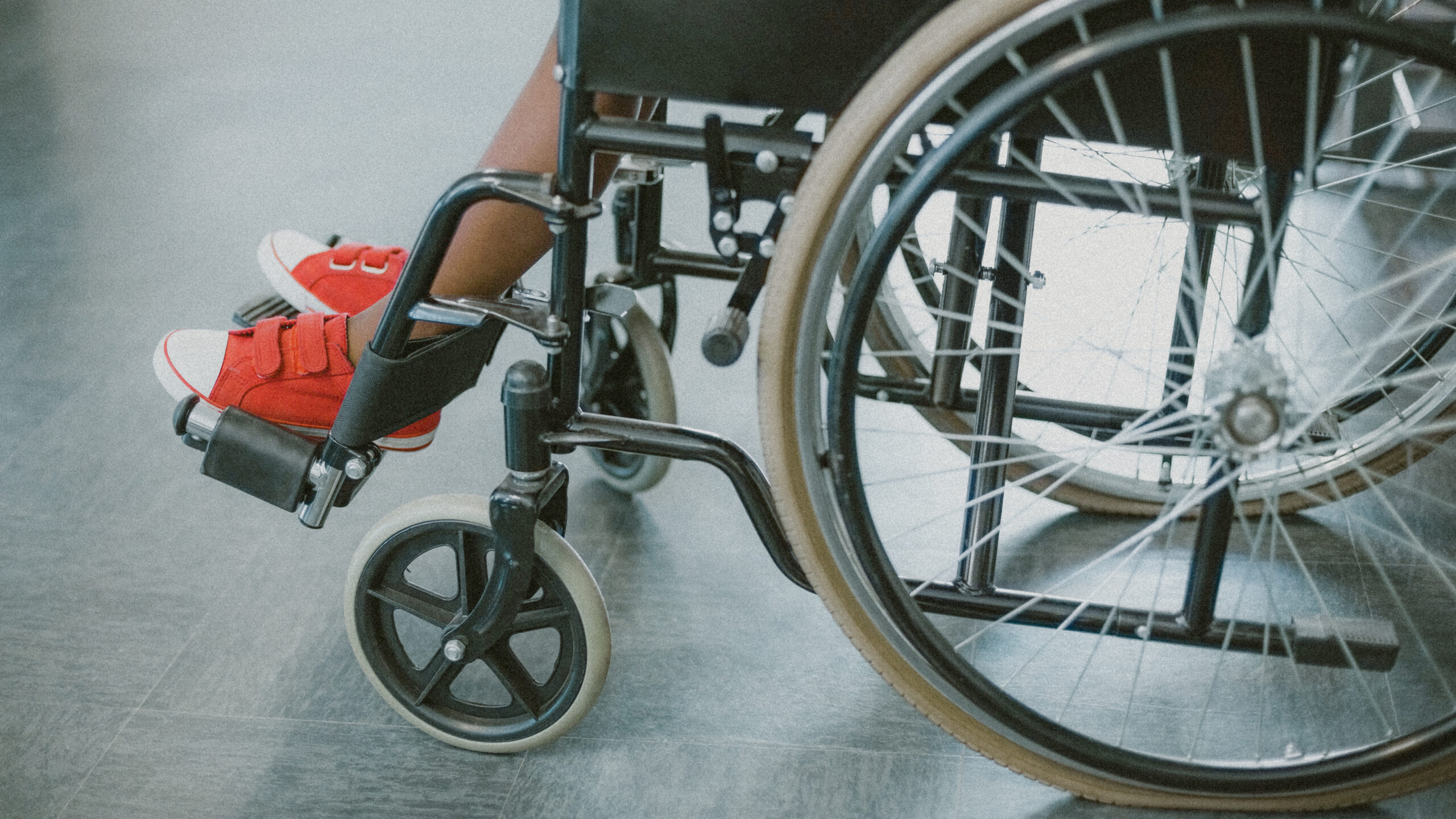Joseph Dutkowsky, MD, KM, is an orthopedic surgeon who has spent his medical career specializing in caring for individuals with cerebral palsy and other developmental disabilities. His primary practice is in Cooperstown, New York, but a few years ago, he was invited to the bright lights of Broadway where he helped establish the Weinberg Family Cerebral Palsy Center at New York Presbyterian / Morgan Stanley Children’s Hospital at Columbia University.
Dr. D., as his patients call him, is an exceptional man. He is extraordinarily devoted to his patients—those in whom he sees the face of God. He would be the first to admit that he has learned more from them than what he has given them in return. His concern for them extends beyond clinical care to a persistent advocacy for their health, welfare, and acceptance in society and the Church. As a Knight of Malta, he takes his vows to defend the faith and care for the sick and poor very seriously. He continues to do research in the robotics lab at Columbia, devising robotic assistance devices to train the brain of those with cerebral palsy to manage motor control. The role of the Catholic faith in his practice of medicine aligns him with the Venerable Jerome Lejeune, whom he acknowledges often.

In 2017, Dr. Dutkowsky published the first edition of Perfectly Human, an inspiring memoir of his experiences, encompassing his youth at a Polish Club and how that contributed to his medical school acceptance; his beautiful love affair with his late wife, Karen; missionary trips into South America; and of course, his care of patients over his more than thirty years of practicing medicine. Perfectly Human is a warm and inspiring read that will make you wish you were his patient.
Mark Bradford: Dr. Dutkowsky, thanks very much for agreeing to this conversation. Let’s start with your book Perfectly Human. It’s a beautiful collection of your thoughts and experiences, centered on your care of people with disabilities. Tell us about your motivation for writing the book and how the process of reaching back so many years to bring these stories forward might have affected your thinking about your present and future work.
Dr. Dutkowsky: Thank you, Mark, for the opportunity to answer questions about my book. I have had the privilege to care for and learn from persons with disabilities and their families for over thirty years, and I’m certain that I have the best job in the world. Currently, we are awash in a culture that repeatedly and unrelentingly sends the message that if you only had the right job, the right car, the right clothes, the right spouse, etc., your life would be perfect and then you’d be happy. Yet it’s this compulsion and lie that has driven our society—especially our youth—into anxiety, depression, exhaustion, and despair, leading to dependency, addiction, desperation, and horribly, suicide. By allowing oneself to be perfectly human, one discards the chains of trying to be humanly perfect, which frees one to encounter the fullness of life and love. God does not make mistakes. We are all made in the image and likeness of God. If we only see God in the perfect people, we limit ourselves to a very flat image of humanity. When we allow ourselves to see God’s image and likeness in the totality of humanity, we find ourselves with a much richer image of the divine and face-to-face with a person who desires an all-encompassing love fest with each of us just as we are.

You’ve dedicated your professional life to caring for those with intellectual and developmental disabilities, but you began in college to study aerospace engineering. What turned you toward medicine, and especially toward a career focused on treating patients with cerebral palsy and other disabilities?
When I finished engineering school, I worked as a private consultant for an aerospace company on a grant reanalyzing the original satellite data tapes of the high altitude nuclear weapons tests of the United States and the Soviet Union. It was very interesting and challenging work, and that was only one of many projects on my floor. As part of my application for medical school, I had to write an essay. I wrote about the technology surrounding me which was being used to blow up people and instead wanting to use it to benefit children with disabilities. Interestingly, I had no one in my family with a disability so there is no logical reason why I wrote that. It was a Holy Spirit moment, and four decades later, that’s exactly what I do. The greatest grace given by the Holy Spirit was to me. I suspect one would not be surprised that doctors and especially surgeons can think very highly of themselves. Yet it has been my patients and their families that have taught me to love myself not despite my imperfections, but many times, because of them. They have rescued me from a life of self-imposed narcissism for which I am forever grateful. They have been my greatest professors and mentors.
As a Knight of Malta, you have been to Lourdes several times. In fact, you personally know the medical director, Dr. Alessandro de Franciscis, who invited you to speak at a medical conference there when you were President of the American Academy for Cerebral Palsy and Developmental Medicine. There is probably no place on earth where science and religion meet so profoundly as there in Our Lady’s Domaine. I’m curious what your experiences at Lourdes have taught you about humanity, disability, and the desire for healing or cures.
Healing is not synonymous with cure. In fact, incredible healing occurs in the presence or absence of a cure. Anyone who has been to Lourdes has returned home knowing that truth. The conference to which you refer brought together thirty prominent churchmen and thirty prominent scientists (including a Nobel Prize winner) to give talks on faith and science. I was the only surgeon, and my talk was entitled “Dignity and Disability.” Faith and science used to work and exist hand in hand until the last century where they drifted apart with a chasm between them apparently never to be bridged again. Science was thought to be the domain of rational minds while faith was something one must believe. It is true that faith is a gift from God, but where do you think one gets the ability to understand physics, chemistry, or psychology? It’s all a gift, so why the chasm? It makes no sense whatsoever. We have paid a steep price for this separation in recent times. It is clear that on nearly every front, our response to the pandemic was suboptimal. I strongly believe that had we had groups of persons of faith and persons of science who met regularly and shared ideas, listened to each other, and tempered each other, we would have had a much more coherent, effective, and unified response to the pandemic. Society will be enriched when the old team of faith and science is reunited.
In your book, you make the challenging comment that all of us who are not disabled are, in fact, only temporarily abled. What do you mean by that, and what implication does that have for each of us in the Body of Christ?
Being temporarily able bodied is truly a scary thought to modern minds. It is simply the course of life that aging leads to a natural decline in physical abilities (though wisdom will hopefully increase). At times in one’s life, it is likely that one may become temporarily disabled, even permanently disabled. Some persons are born with a lifelong disability. In all events, one does not become unable but develops differing abilities. The most striking example of that was brought home to me in—of all places—the New York City Ballet. Eight years ago, a mother of a child with cerebral palsy wrote the NYC Ballet asking them if they ever did workshops for children with disabilities. The educational people at the ballet couldn’t let it go, and one day, out of the blue, they contacted me and asked me if I would help them set up some workshops. We did, and the result was amazing. The ballet fell in love with these workshops, and they have expanded every year since. This past year, they even did a full performance of The Nutcracker on their stage at Lincoln Center strictly for persons on the autism spectrum and their families. The greatest effect was on the dancers who look forward to teaching the workshops. Many of these incredible artists have become my friends, and I’ve asked them what’s in it for them. They all tell me the same thing: “These kids don’t judge us.” How ironic! We have begun doing the same thing with baseball clinics on Doubleday Field in Cooperstown with former Major League Baseball players with the same response. These professionals who have worked so hard and mastered their crafts at such a high level have fun again doing what they love as they are given a respite from the pressures to be perfect. By the way, the dance workshops and baseball clinics are all free to the families.
You write in your book that “the culture of modern eugenics has successfully and deeply infiltrated our educational systems from elementary school through medical residency programs.” What do you see as the future for persons with disabilities as their community gets smaller and smaller because of prenatal diagnosis and abortion? What do you see as the greatest need of people living with disabilities in the Church, and how can we better provide for them?
In the greatest expression of medicine, the prenatal diagnosis of a genetic condition would lead to early diagnosis and treatment of a disability, potentially limiting negative effects on the life of the person. In the worst expression of medicine, this information would be used to end the life of the individual. Sadly, in our current culture, the latter scenario dominates. It is what Dr. Jerome Lejeune called “genetic discrimination,” and it is very much discrimination. Yet, despite this tragedy, what is called the “disabilities community” is actually growing. Most disabilities, even childhood onset disabilities, cannot be diagnosed through prenatal genetic testing. Two thirds of the one million persons with cerebral palsy in our country are adults, not children, and over half of them are functioning in society. As we become temporarily disabled, permanently disabled, or yes even old, we join that community. However, in a just society, and especially in the Church, it is not an issue of them and us. It is just us. There is no separate cross for Down syndrome. There is no separate cross for cerebral palsy or autism. There is no separate cross for ballerinas or baseball players. There is one cross. How often I have seen a parent hold and caress their child with a disability with tender love and care. How much more does an all-loving God wish to hold and love his perfectly human creation, you. I wrote Perfectly Human to offer and encourage you to take your pain, disabilities, and imperfections and unite them with the love wounds of the God-man on the cross, feel the shackles explode from your person, and be set free.
